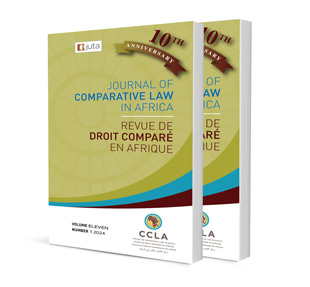A Critical Review of Jurisprudence on the Adjudication of Presidential Election Petitions in Africa

A Critical Review of Jurisprudence on the Adjudication of Presidential Election Petitions in Africa
Author: Justice Mavedzenge
ISSN: 2521-2605
Affiliations: PhD Constitutional Law (UCT), LLM Constitutional and Administrative Law (UCT), LLB (UNISA), BA (MSU). Adjunct Senior Lecturer of Public Law Research Fellow, Faculty of Law, University of Cape Town
Source: Journal of Comparative Law in Africa, Volume 11 Issue 1, p. 1 – 30
https://doi.org/10.47348/JCLA/v11/i1a1
Abstract
A survey of jurisprudence on the adjudication of presidential election petitions in Africa yields different and sometimes confusing results on the legal approaches that are being applied by courts in different jurisdictions to determine the standard of proof which a petitioner must discharge and the nature of violations which a petitioner must prove in order for the court to vitiate an election. This is despite the fact that most of these countries share similar legal frameworks in the sense that their rules of evidence are similar while their constitutions require elections to be conducted in a way which adheres to the principles of universal suffrage, free suffrage, equal suffrage and secret suffrage. The emergence of divergent views and positions among courts which operate on the basis of a similar legal framework reflects a lack of coherence in the emerging African jurisprudence on the adjudication of presidential election petitions. What then is the appropriate standard of proof which the petitioner must discharge in a presidential election petition, and what kind of violations should a petitioner prove in order for the court to vitiate an election? In an attempt to contribute towards strengthening the role of the courts in resolving election disputes, this paper suggests that the approach to be taken by courts when adjudicating election petitions should very much depend on the case that has been presented by the petitioner. Where the petitioner is alleging irregularities and is claiming that those irregularities affected the results of the election, the question that must be examined by the court is the extent to which the results were affected. Where the petitioner’s challenge is directed at the integrity of the election process, the question to be examined by the court should be the extent to which the integrity of the process was violated.